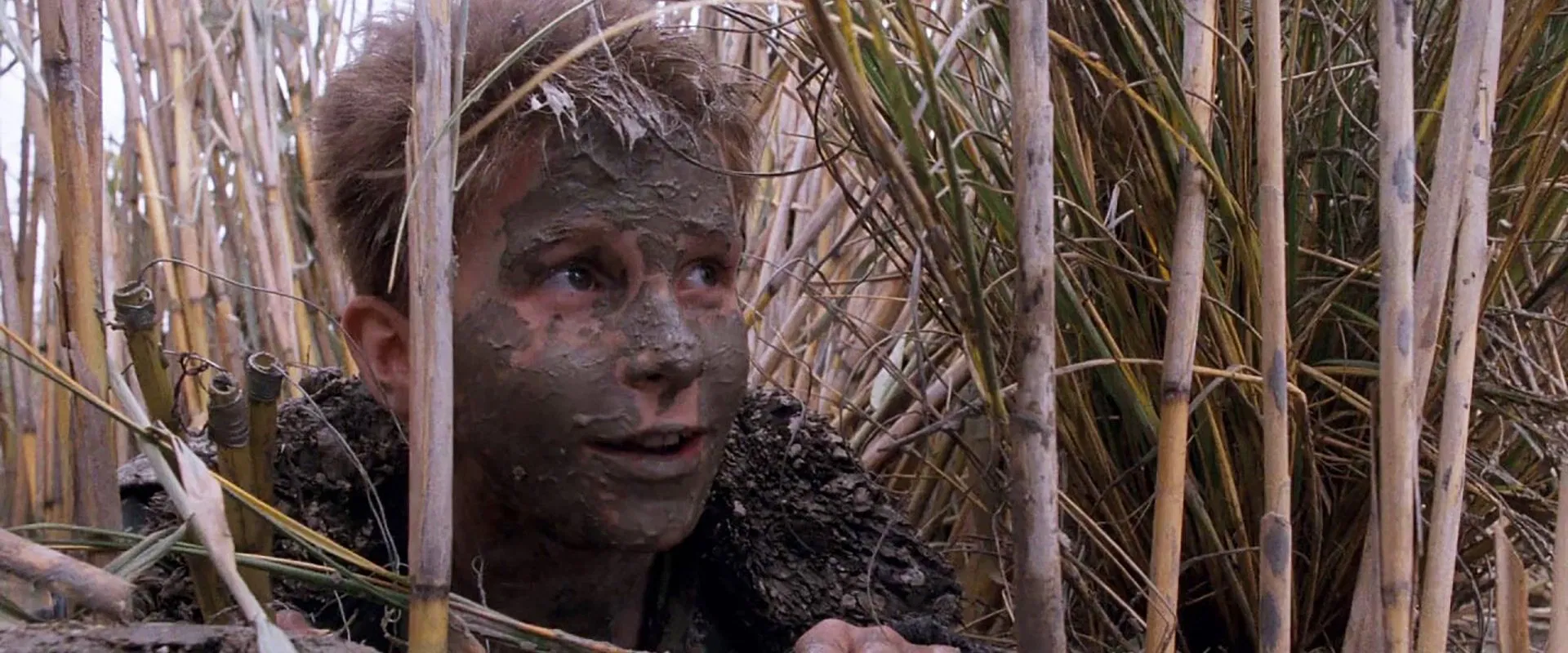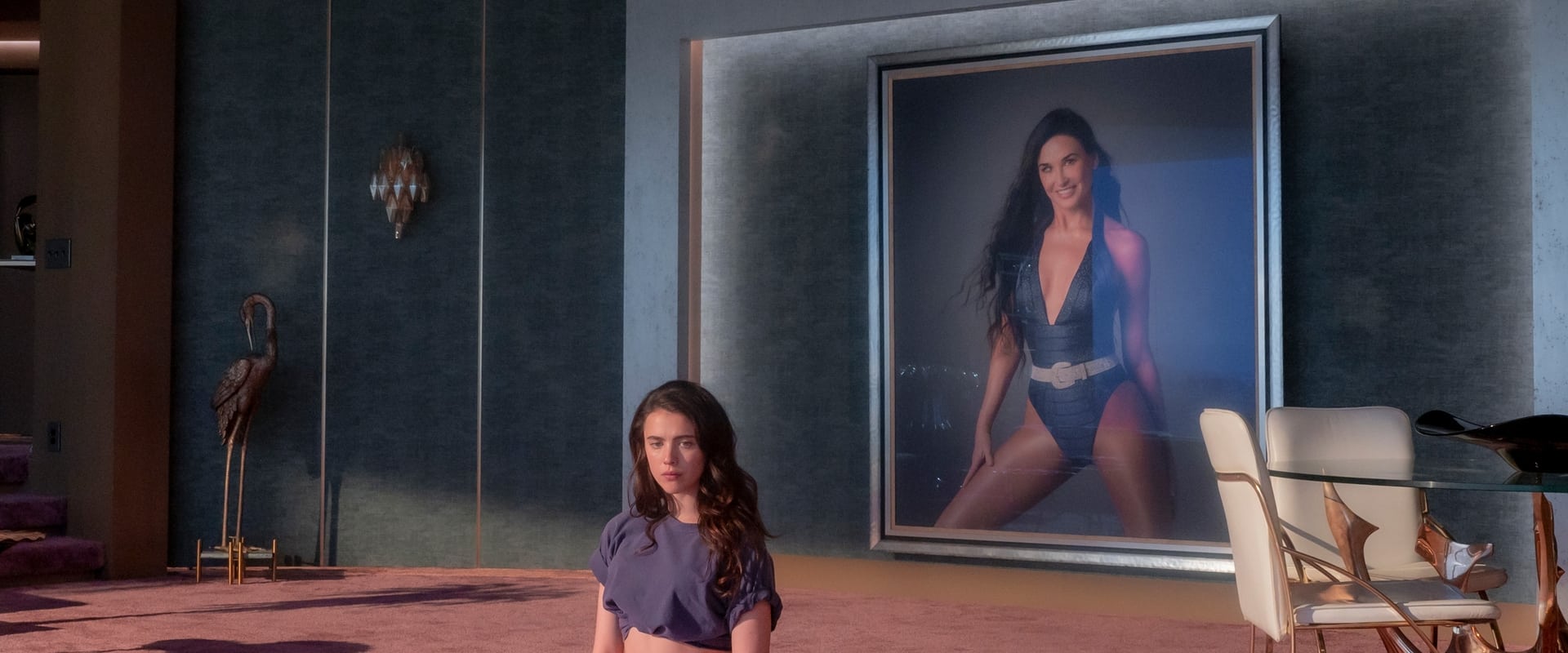There’s a moment in Empire of the Sun if you’re not too numb or calloused to notice it when eleven-year-old Jim Graham, perched amid the rubble of wartime Shanghai, tries to recall his parents’ faces and can’t quite conjure them up. That blankness, that terror, is like an air raid siren going off inside a child’s mind, and Spielberg, whose name floats above this adolescent epic like some well-meaning guardian angel lets us feel every jagged pulse of it. There are dozens of war films, even more coming-of-age stories, but it’s not often that a director with Steven Spielberg’s technical bravado and Disney-nursed heart contrives to put a child (and the audience) through the meat grinder of history with the open-eyed panic that Empire of the Sun delivers.
It’s easy, far too easy, to dismiss Spielberg’s brand of spectacle as showmanship, but watching this film decades removed from the E.T. years, he’s almost recklessly honest about what terrifies him, and what terrifies children: separation, abandonment, the inescapable erosion not just of innocence, but of identity. Little Jamie, rechristened “Jim” by John Malkovich’s savvy survivor Basie, swaggers with all the decomposing grace of the British Empire as the Japanese take Shanghai, but the swagger like most of Spielberg’s heroism, is a mask against fear. Christian Bale, so young his face still has the translucent softness of childhood, gives a performance that shocks in its completeness. Child actors usually telegraph their skills: “Look, I’m acting!” Here, Bale simply is, present, vital, insatiably hungry, by turns manic and fragile, and so heartbreakingly eager to please that when that fever turns desperate, you ache for him the way you ache for lost versions of yourself.
What’s remarkable is not just that Spielberg, that high priest of the Boy’s Own Adventure, finally bit down on real horror, but that he let the audience feel the difference between survival and resilience. The internment camp, with its barter economy and makeshift alliances, has all the casual brutality and weird camaraderie of a schoolyard invented by Kafka. Food is traded, loyalties double-crossed, pains numbed like old luxuries. There’s a strange lyricism in how Spielberg (with Tom Stoppard struggling valiantly beneath him in the screenplay) and cinematographer Allen Daviau photograph the daily rhythms: the dust, the barbed wire, the dreamy blue-gold light, John Williams’s score swelling at intervals, it’s all almost comforting, until you realize comfort is another illusion they’ll take away from you.
And then there’s John Malkovich, slippery, self-interested Basie, who plants his flag squarely in the grayest of moral no-man’s-lands. Malkovich does something peculiar: he lets you see the calculations behind every folksy bon mot, the shrewd blink behind the smile, but makes us want to believe in, or at least understand, him. Spielberg’s tendency is often toward clear heroes and clearer villains, but Basie isn’t either; he’s the kind of adult a clever child both admires and fears, the sly operator who mistakes survival for virtue. Every time Jim draws a little closer to Basie, every time he’s disappointed or betrayed, you watch the gentle weathering of a soul. The real coming-of-age here isn’t just about the traumas of war, but the slow, seductive erosion of trust.
The set pieces, the bombings, the night raids, even the vision of P-51 Mustangs strafing the camp in what for Jim is a burst of mythic ecstasy prove that Spielberg is still Spielberg, a master manipulator who wants to dazzle as much as to devastate. But for once, the dazzle is tinged with sorrow. When Jim weeps because he can’t remember his parents, the moment lands with an adult’s knowledge that some wounds are too deep for first aid. It’s Spielberg’s most naked acknowledgement that childhood doesn’t end; it’s stolen, and often you can’t even recall what was taken from you.
People sometimes dismiss Spielberg’s “serious” films as bids for grown-up prestige, but Empire of the Sun doesn’t strut or underline, it glimmers, flickers, and frequently stalls at the yawning doorways between wonder and terror. The depiction of the Japanese camp isn’t just realistic in incident, it’s symbolic, the war is both outside and horribly inside the child. Here’s a boy who survives, yes, but what of the pieces of himself he trades away, the bits he represses, the history rewritten in his own head to keep panic at bay? By the time Jim steps into the orphanage and fails to recognize his parents, Spielberg has done to us what the war has done to him: blurred the line between safety and estrangement beyond repair.
People love to argue about what “loss of innocence” really means, as if innocence was a set of white gloves you could donate to charity and be done with. For Spielberg, and especially for J. G. Ballard (whose own memories provided the film’s bones and marrow), it’s something much messier—something you replay, sleepless, years and decades later, trying to remember who you were before survival became your only trick. The last scenes of Empire of the Sun offer no simple closure: reunion is only a half-answer, a question mark painted in the colors of a mother’s longing. Will Jim find himself again? Possibly, but he'll have to sift through memories as charred and scattered as Shanghai after the bombs. He’ll never be just a child again, if he ever was.
I can count on one hand the number of American studio films that have risked not only showing the horror of war through a child's eyes, but allowing the war to really, almost fatally, change that child. Spielberg, a sentimentalist who, here, dares not to rescue every last scrap of innocence has made not just an ambitious adventure, but a film about memory: hungry, lonely, war-haunted memory, flickering in the ruins. And against all odds, you remember.


